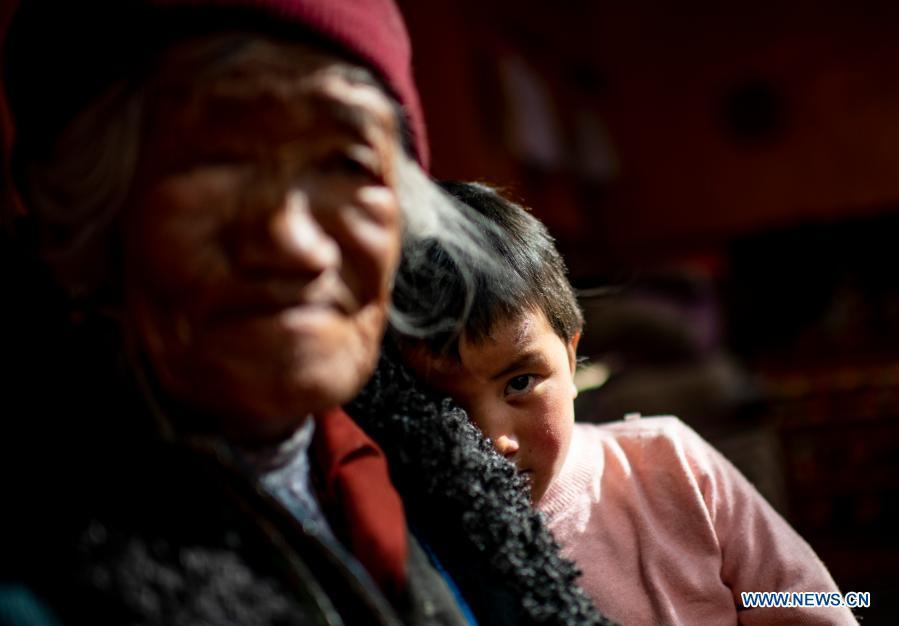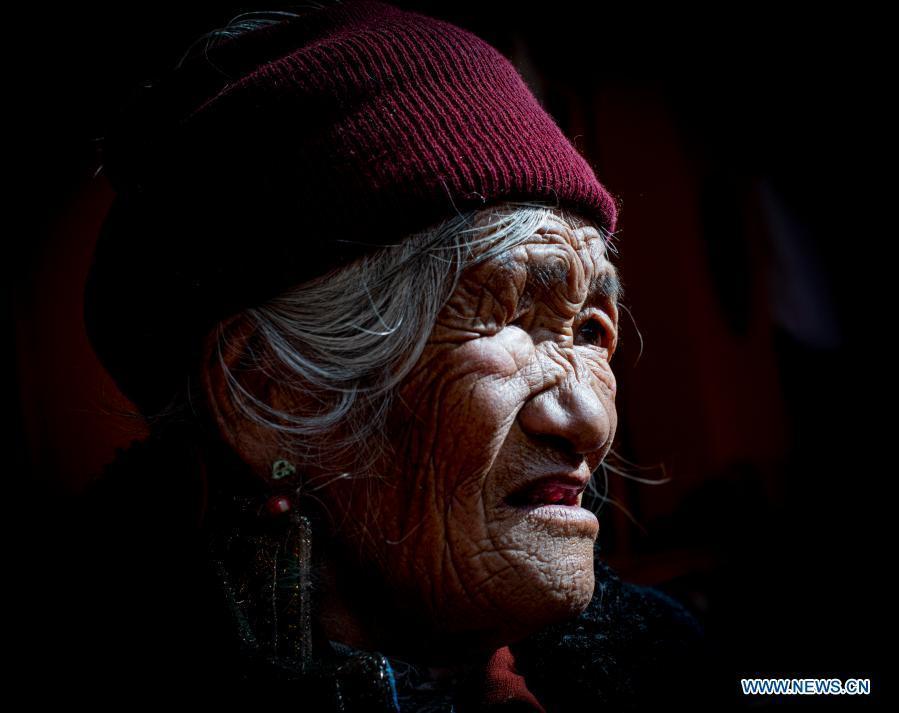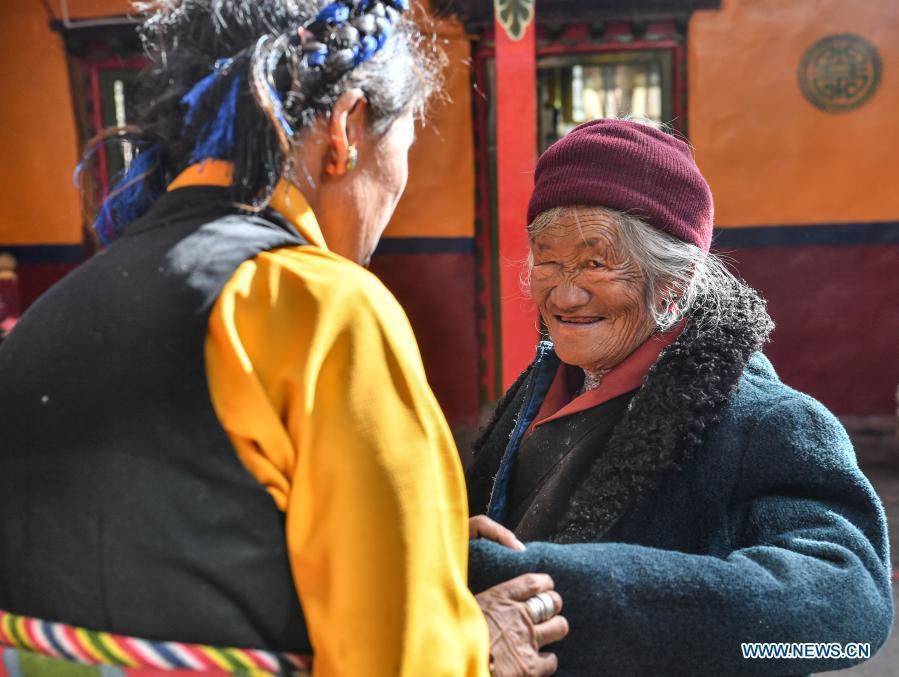Source:Xinhua 2021-03-24

Phentok (C) poses for a group photo with her family members at Taba Village in Xigaze, southwest China's Tibet Autonomous Region, Jan. 15, 2021. Phentok, born in 1941, is a villager of Taba Village in Xigaze, China's Tibet Autonomous Region. In the old times, the former serf wore worn-out clothes and had no quilt to warm herself in winter times. Recalling her life in the old times, Phentok said that it was too wretched. Such a plight came to an end in 1959, after a democratic reform liberated more than 1 million people, or 90 percent of the population of the region at that time, from the feudal serfdom. Phentok's family since then was granted farmland to grow crops and began to feed livestock, living on a warm life with their own hands. (Xinhua/Jigme Dorje)

Phentok stays with her granddaughter at Taba Village in Xigaze, southwest China's Tibet Autonomous Region, Jan. 15, 2021. Phentok, born in 1941, is a villager of Taba Village in Xigaze, China's Tibet Autonomous Region. In the old times, the former serf wore worn-out clothes and had no quilt to warm herself in winter times. Recalling her life in the old times, Phentok said that it was too wretched. Such a plight came to an end in 1959, after a democratic reform liberated more than 1 million people, or 90 percent of the population of the region at that time, from the feudal serfdom. Phentok's family since then was granted farmland to grow crops and began to feed livestock, living on a warm life with their own hands. (Xinhua/Sun Fei)

Photo taken on Jan. 15, 2021 shows a portrait of Phentok at Taba Village in Xigaze, southwest China's Tibet Autonomous Region. Phentok, born in 1941, is a villager of Taba Village in Xigaze, China's Tibet Autonomous Region. In the old times, the former serf wore worn-out clothes and had no quilt to warm herself in winter times. Recalling her life in the old times, Phentok said that it was too wretched. Such a plight came to an end in 1959, after a democratic reform liberated more than 1 million people, or 90 percent of the population of the region at that time, from the feudal serfdom. Phentok's family since then was granted farmland to grow crops and began to feed livestock, living on a warm life with their own hands. (Xinhua/Purbu Zhaxi)

Phentok stays with her daughter at Taba Village in Xigaze, southwest China's Tibet Autonomous Region, Jan. 15, 2021. Phentok, born in 1941, is a villager of Taba Village in Xigaze, China's Tibet Autonomous Region. In the old times, the former serf wore worn-out clothes and had no quilt to warm herself in winter times. Recalling her life in the old times, Phentok said that it was too wretched. Such a plight came to an end in 1959, after a democratic reform liberated more than 1 million people, or 90 percent of the population of the region at that time, from the feudal serfdom. Phentok's family since then was granted farmland to grow crops and began to feed livestock, living on a warm life with their own hands. (Xinhua/Sun Fei)

Phentok feeds livestock at home at Taba Village in Xigaze, southwest China's Tibet Autonomous Region, Jan. 15, 2021. Phentok, born in 1941, is a villager of Taba Village in Xigaze, China's Tibet Autonomous Region. In the old times, the former serf wore worn-out clothes and had no quilt to warm herself in winter times. Recalling her life in the old times, Phentok said that it was too wretched. Such a plight came to an end in 1959, after a democratic reform liberated more than 1 million people, or 90 percent of the population of the region at that time, from the feudal serfdom. Phentok's family since then was granted farmland to grow crops and began to feed livestock, living on a warm life with their own hands. (Xinhua/Jigme Dorje)